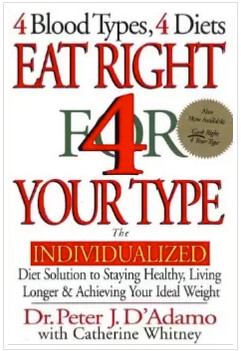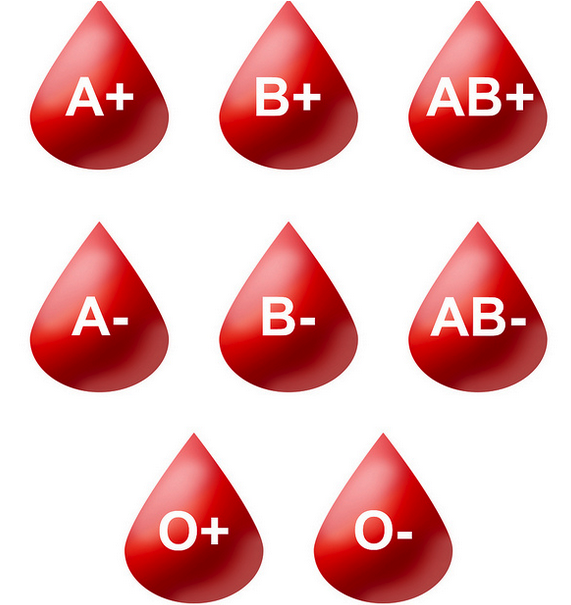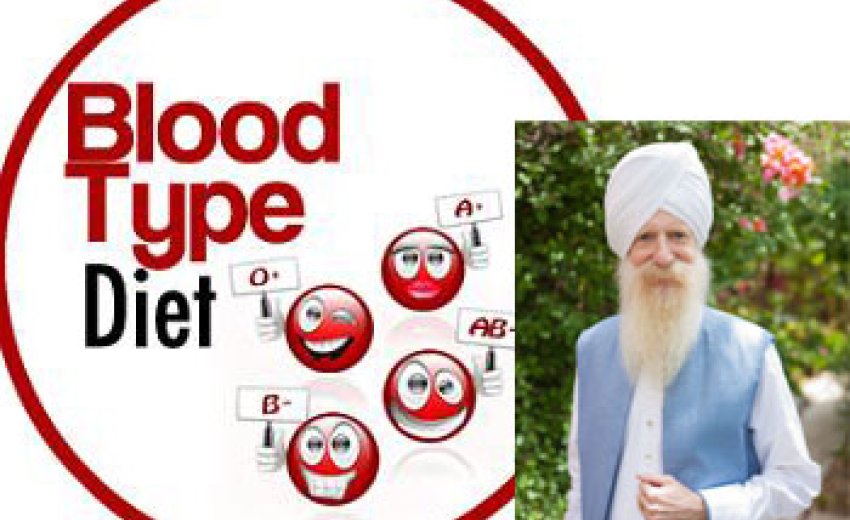 Even though Peter D’Adamo’s book on the blood type diet came out almost 20 years ago, patients still ask me if they should follow this diet for themselves.
Even though Peter D’Adamo’s book on the blood type diet came out almost 20 years ago, patients still ask me if they should follow this diet for themselves.
I also have recently come to learn that one of my prominent medical doctor colleagues is recommending this diet to all his patients.
This is obviously still a subject people are talking about.
So, I decided to write this article so that my patients know my position on this diet, and hopefully see that there is no science to it.

When the Book Eat Right For Your Type first came out in 1996 I was attracted to the concept that our blood type might indicate how we should eat. This is based on the long-held assumption that different blood types have originated in different parts of the world over the eons of time. Therefore, the logic goes, you should eat the foods that were available in the part of the world where your blood type originated.
As I said, this idea was at first interesting to me. However, as I looked more closely at it, the logic of this made less and less sense. There are indeed hundreds of other markers on our red blood cells besides the simple ABO typing. This additional testing of markers is done in blood banks when a patient’s blood is “cross matched” with their donor’s-before it is infused- to make sure that the blood will not produce a reaction in the recipient.
Furthermore, when I looked at the diet that was recommended for my own blood type, it was a diet that I had rejected years before, as a diet that made me sick and get recurrent sinusitis.
Over the years, I have watched some of my patients try this diet. Most give it up after a few weeks as not being for them. I would estimate that between 5% and 10% of my patients who have tried the diet do find that it helps them. But I’m not sure if the benefit comes the food they are eating, or rather the food they have stopped eating, in order to accomplish the diet. In other words, for some people, stopping dairy, sugar, and eggs will lead to an improvement in their health. These people might attribute the benefit to following the blood type diet, rather than realizing that they were allergic or senstive to the sugar, dairy, and eggs.
I was very happy to find an article in the medical literature addressing the blood type diet. In this article, they searched over 1,400 references and they concluded that “No evidence currently exists to validate the purported health benefits of blood type diets.”
Another article was also published looking at the blood type diet and cardio-metabolic risk factors and concluded that “the findings do not support the ‘Blood-Type’ diet hypothesis.”
And so in summary, the blood type diet book provided significant financial success for the publisher and the author. However, my own practice and the medical literature, shows that it provides no benefit to patients’ health.
I was recently delighted to see that my colleague and friend Michael Greger had put together all the data on the blood type diet, into one of his five-minute brilliant video summaries. You can watch it below.
In addition he wrote a summary article called “Blood Type Diet Perceived as "Crass Fraud". You can read it here.
Drop me a note on Twitter or Facebook let me know if you’ve tried the blood type diet, and what your success has been. What are your thoughts about this diet?
Watch Dr Gregor’s excellent video here.
References:
Blood type diets lack supporting evidence: a systematic review.
ABO genotype, ‘blood-type’ diet and cardiometabolic risk factors.
Image Credit: Zappy's Technology Solution /flickr
Remember to follow me on Twitter and Like me Facebook where you can leave me questions and comments.
Editor's note: This article was originally published on July 9th 2015





